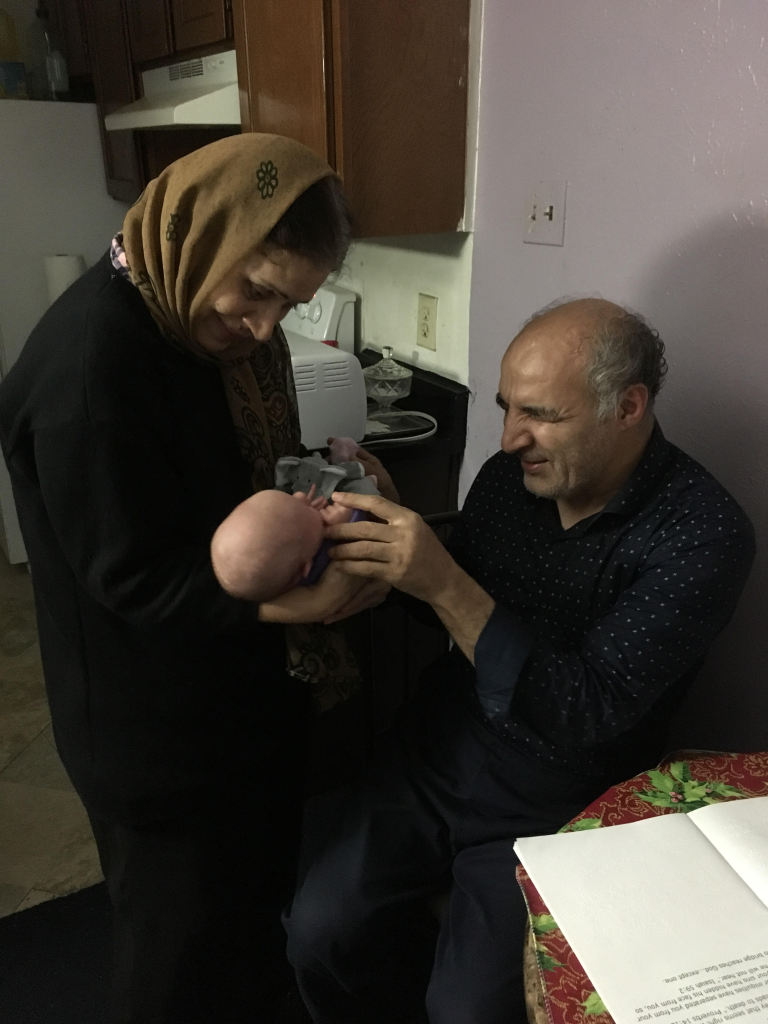Do You See Anything?

Guest Post: Matt Johnston
Monireh and Bahram first attended my English class about a year ago. They were a joy and a challenge to teach. You see, it’s hard to teach the blind. Bahram was born blind, but that didn’t stop him from succeeding in school and eventually becoming a teacher at a school for the blind. Monireh became blind through a degenerative eye disease. They met at the school where Bahram taught and made an unlikely match, as Bahram is Muslim and Monireh is Baha’i. After fleeing from religious persecution, the couple came to the USA, where Monireh leads her husband through the neighborhood to English class (talk about the blind leading the blind).
When I think about Monireh and Bahram, I think about two other blind people, both described in Mark 8. In Bethsaida, a blind man was brought to Jesus to be healed. Jesus led him to a quiet place, spit in his eyes, and asked if he could see. The man’s sight was partially restored. Lest we think that the blind man’s faith was ineffective, keep reading. Jesus repeated his action, and the blind man’s sight was fully restored.
Immediately after, Jesus asks a second blind man an intriguing question, “Who do you say that I am?” This blind man suffered from a different kind of blindness. He responds with partial spiritual insight, “You are the Christ.” And lest we think that this blind man, aka Peter, saw clearly – we keep reading. Peter, believing that he could see, led Jesus to a quiet place to rebuke Him regarding His plan to be rejected, suffer and die.

Thankfully, there was still an opportunity for Peter to see and respond to Jesus (Mark 9:2-13, 14:66-72; John 21:15-19; Acts 2:14-42), and he finally “gets it.” Thankfully, too, there is still time for Monireh and Bahram to receive sight. It is such a joy to spend time with them; and I’ve learned much from their patience, hospitality, joy, and thankfulness. As they teach me how to “see” and teach and learn as they do, my hope is that they will see Christ for who He is – the Suffering Servant who willingly laid down his life to defeat sin and death. I hope, too, that you will see not only the goodness and grace and victory of the gospel but also the call to come and die – to give up blind ambition and worldly possessions for the sake of Christ. Then, as Peter said, you will see what Joel predicted (Acts 2), and that “everyone who calls on the name of the Lord will be saved.”






